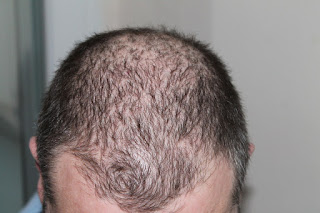How to Improve Your Memory
A strong memory depends on the health and vitality of our brain, but as we age our memory declines. Whether you're a student or a working professional, there are lots of effective methods for improving memory and mental performance.
Reducing Stress
Meditate every day
Meditating for at least 20 to 30 minutes every day physically changes your brain and makes you less anxious, and more empathetic and rational.Meditation also enhances concentration and improves sleep.
Meditating right before bedtime isn't suggested, as you're more seemingly to relax into sleep.
Do Yoga
Yoga increases the physical strength and flexibility, besides that yoga also changes your brain. Research suggests that in addition to reducing stress, depression and anxiety, yoga protects the brain from shrinking with age.
Exercise Regularly
Exercise is very important for overall physical and mental health.
Research has established that it’s useful for the brain and should facilitate improved memory in folks of all ages, from kids to older adults.
Many studies have shown exercise might increase the secretion of neuroprotective proteins and improve the expansion and development of neurons, resulting in improved brain health.
Get Enough Sleep
Lack of proper sleep has been associated with stress, anxiety, poor memory, and many other undesirable conditions.
Sleep plays an important role in memory consolidation, a process in which your brain consolidates information into your long-term memory bank.
Improving Your Diet
Eat healthy fats
Research suggests that omega-3 fatty acids are particularly beneficial for brain function and brain health. Fish is a particularly rich source of omega-3, especially cold water “fatty fish” such as salmon, trout, halibut, tuna, mackerel, herring and sardines.
Seaweed, walnuts, ground flaxseed, flaxseed oil, winter squash, kidney and pinto beans, spinach, broccoli, pumpkin seeds, and soybeans are also the sources of omega-3.
Eat nuts and seeds
Vitamin E can help minimize the cognitive decline that accompanies age. Nuts and Seeds are great sources of vitamin E.
Drink enough water
The brain is made up of roughly 80% of water; when your brain is dehydrated, it does not function properly.
Eat antioxidants
Antioxidants facilitate lower inflammation within the body by reducing reducing oxidative stress caused by free radicals. Antioxidants are found in foods like fruits, vegetables and teas.
Berries are particularly high in antioxidants, eating them is an excellent way to prevent memory loss.
Pomegranate or pomegranate juice without added sugar are also a good source of antioxidants.
Changing the Way You Think
Pay attention
Really pay attention to the things around you —Try to relate information to the colours, the smells, the people, the weather, textures, and tastes.
Associating a visual image with a word or name helps you remember them better.






Nice information... Nowadays, we are in a stressful world that gives so much stress for our mind and it affects your health also by following these things we could prevent stress and have a happy life.
ReplyDeleteConcentration Exercises For Students
Memory Improvement Techniquest
Kids Brain Trainer
Right Brain Training
One On One Maths Tutoring
Baby Brain Development
Thanks for your feedback and sharing more topics related with this.
Delete